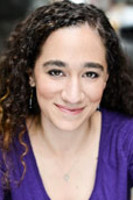Aaron Tucker, currently an undergraduate at Harvard, attended some of CFAR's earliest workshops, and returned this summer as a volunteer at our July workshop. Below, he gives his impressions of how the curriculum and format have grown and developed and what he's gotten out of our rationality training.
Two weeks ago, I went to the July CFAR workshop as a volunteer. A year ago I had been to the June and August workshops, and over the last two years I've been involved in the LessWrong community.
The first few CFAR workshops felt sort of like a collection of the most consistently effective tricks and exercises that LessWrong had come up with – different ways that you could be aware of cognitive biases to work through, ways to frame your decisions so that you would ask questions that made more sense, and software tools that would probably make your life better.
All of that was cool, but it felt disconnected. It might have been effective*, but it felt a bit ad-hoc.
The current workshops are awesome. It feels like more of a framework, and like the staff has done an awesome job integrating the best of what worked before, and ditching or changing what didn't. It feels more like a genuinely unique, psychologically, cognitively, and emotionally aware craft of how people can make decisions that make their life better.
Mid-way through day two, it stopped feeling like I was going to individual classes that were teaching different things that I should definitely do, and more like the different classes were just emphasizing different aspects of the same skill.
Sitting through the classes, I noticed bits and pieces of the old CFAR workshop material popping up in different places, but framed in contexts in which I would actually feel like using them (thought experiments become a subskill of using Bayes' Theorem and your “Inner Simulator”). The different classes seemed to fit together better – Aversion Factoring felt like it could start during a Goal Factoring session, when you start directing emotional awareness specifically at figuring out things you are avoiding. Againstness Training felt like Turbocharged practice sessions for Comfort Zone Expansion, and a way to approach Aversions and Goals that you don't quite want to admit, or to see.
I didn't go to Inner Simulator and Bayes, but reading the packet and talking with people about them made them seem like an owner's manual for your brain – asking you to imagine being in a world where a particular thing is happening, then asking yourself questions about how surprised you are or how you feel about it in a way that lets you compare different possibilities and figure out what's happening together.
And you know, other people are probably going to carve it up differently. I actually expect that what I wrote is just the associations that happened to pop up when I tried to understand the classes (indeed, the ones that were easy to write about in a testimonial format). The material actually felt rich enough to sustain different ways of organizing it and thinking about it, and I think I would benefit from going back over it again.
*CFAR has been collecting data on a randomized controlled trial on the effectiveness of CFAR workshops, so expect a definitive answer soonish


